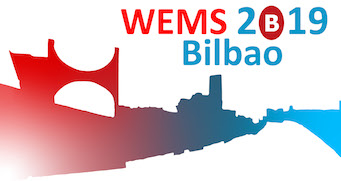Speaker
Description
Among transition-metal oxides, the Molybdenum oxide compounds are particularly attractive due to the structural (2D) anisotropy and to the ability of the molybdenum ion to change its oxidation state, being such properties well adequate for applications on, e.g., chemical sensors, solar cells, catalytic and optoelectronic devices. At ISOLDE we aim studying the incorporation of selected dopants by ion implantation, using the nuclear techniques of Perturbed Angular Correlations (PAC) and Mössbauer spectroscopy (MS). Both techniques make use of highly diluted radioactive probe nuclei, which interact – as atomic sized tips – with the host atoms and defects. The objectives of this project are to study at the atomic scale the probe’s local environment, its electronic configuration and polarization, the probe’s lattice sites, point defects and its recombination dynamics and, in the case of e-gamma PAC, the electron mobility on the host can be further studied, e.g., as a function of temperature.




